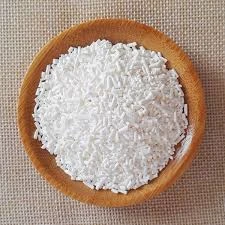
natural anticaking agents
Natural Anticaking Agents Enhancing Food Quality and Safety
In the food industry, maintaining product quality and safety is crucial, especially when it comes to powdered and granulated products. One common issue faced by manufacturers is the clumping or caking of these materials, which can affect the texture, flowability, and overall usability of food products. To combat this problem, anticaking agents are employed, with a growing preference for natural alternatives. This article explores the importance of natural anticaking agents, their sources, and their benefits in food processing.
Understanding Anticaking Agents
Anticaking agents are substances added to powdered or granulated materials to prevent the particles from sticking together. They function by absorbing moisture, reducing friction between particles, and creating a barrier that limits the formation of lumps. While synthetic anticaking agents have been prevalent in the food industry, consumer demand for cleaner labels and natural ingredients has led to a shift towards using natural anticaking agents.
Sources of Natural Anticaking Agents
Natural anticaking agents can be derived from various plant-based sources, minerals, and seaweeds. Some of the common natural agents include
1. Silica Naturally occurring silicon dioxide is commonly extracted from sand or quartz. It is highly effective in moisture absorption and is widely used in powdered food products.
2. Tapioca Starch Sourced from the cassava root, this starch not only serves as a thickening agent but also helps in preventing caking. It is commonly used in powdered food mixtures.
3. Rice Flour Ground rice is another natural agent known for its ability to absorb moisture and maintain a free-flowing texture for powders.
natural anticaking agents

5. Cellulose Plant cell wall material can be processed into microcrystalline cellulose or powdered cellulose, which serve as excellent anticaking agents due to their ability to absorb moisture and provide bulk.
Benefits of Natural Anticaking Agents
The use of natural anticaking agents offers several advantages, making them an attractive choice for manufacturers and consumers alike
1. Healthier Alternatives Natural agents are perceived as safer and healthier compared to synthetic counterparts. Consumers are increasingly seeking products with fewer artificial additives.
2. Improved Product Quality By preventing caking, these agents help maintain the quality and consistency of powdered products, ensuring they remain easy to use and incorporate into recipes.
3. Enhanced Shelf Life Natural anticaking agents can improve the shelf life of products by reducing moisture absorption, which in turn minimizes spoilage and bacterial growth.
4. Versatility Many natural anticaking agents can serve dual purposes, acting not only as anticaking agents but also as thickeners or stabilizers, thus optimizing formulation processes.
5. Sustainable Practices Utilizing natural sources aligns with sustainability goals and can enhance a brand's image as environmentally friendly.
Conclusion
As the food industry continues to evolve, the shift towards natural ingredients is clear. Natural anticaking agents play a pivotal role in ensuring the quality, safety, and palatability of powdered food products. Their multifaceted benefits—ranging from health and safety to product integrity—make them indispensable in modern food processing. With ongoing research into new natural sources and formulations, the future looks promising for the application of natural anticaking agents in creating healthier and more appealing food products. Embracing these natural alternatives not only meets consumer demand but also contributes to a sustainable food supply chain, benefiting both producers and consumers alike.
-
The Safety Challenges of Ammonium Nitrate FertilizerNewsJun.26,2025
-
The Critical Role of Mining ChemicalsNewsJun.26,2025
-
Shelf Life of Glacial Acetic Acid Food GradeNewsJun.26,2025
-
Enhancing PVC Longevity with 1,2,3-Benzotriazole InnovationsNewsJun.26,2025
-
China’s Dominance in Food Additive ProductionNewsJun.26,2025
-
Can Aluminum Hydroxide Replace More Toxic Alternatives?NewsJun.26,2025
-
PE and PP Plastics with Benzotriazole AdditivesNewsJun.12,2025
Hebei Tenger Chemical Technology Co., Ltd. focuses on the chemical industry and is committed to the export service of chemical raw materials.
-

view more DiethanolisopropanolamineIn the ever-growing field of chemical solutions, diethanolisopropanolamine (DEIPA) stands out as a versatile and important compound. Due to its unique chemical structure and properties, DEIPA is of interest to various industries including construction, personal care, and agriculture. -

view more TriisopropanolamineTriisopropanolamine (TIPA) alkanol amine substance, is a kind of alcohol amine compound with amino and alcohol hydroxyl, and because of its molecules contains both amino and hydroxyl. -

view more Tetramethyl Thiuram DisulfideTetramethyl thiuram disulfide, also known as TMTD, is a white to light-yellow powder with a distinct sulfur-like odor. It is soluble in organic solvents such as benzene, acetone, and ethyl acetate, making it highly versatile for use in different formulations. TMTD is known for its excellent vulcanization acceleration properties, which makes it a key ingredient in the production of rubber products. Additionally, it acts as an effective fungicide and bactericide, making it valuable in agricultural applications. Its high purity and stability ensure consistent performance, making it a preferred choice for manufacturers across various industries.











